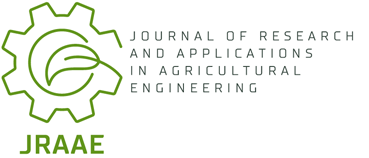Current issue
Online First
Archive
Instructions for Authors
Guide for Authors
Peer Review Policy
Research Ethics Policy
Ghostwriting and Guest Authorship
Copyright
Open Access Policy
Plagiarism
About the Journal
Aim and Scope
Scientific Board
Publisher
Editorial Board
Indexing in Databases
Personal Data Protection
Repository Policy
Contact
ORIGINAL PAPER
Effect of biological plant protection products on beneficial insects in organic potatoes crops
Journal of Research and Applications in Agricultural Engineering 2010;55(3):191-194
KEYWORDS
ABSTRACT
The Colorado Potato Beetle (CPB) is one of the most imminent pests of potatoes. Modern strategies for controlling this pest in organic farming were developed under field trials in Germany and Poland. In 2004-2009, the experiments have been done with selected insecticides containing the active substances permitted to organic farming, e.g. pyrethrum, neem, Bacillus thuringiensis var. tenebronis, spinosad. The products were applied in different combinations and lapses of time. Treatments with neem and B.t.t significantly reduced the percentage of defoliation due to larval feeding and significantly increased the yield, however spinosad application resulted in higher efficacy and lower cost. Data concerning this subject are published in other papers of authors. The numbers of beneficial insects in 2004-2007 were very low, only ladybirds (Coccinella septempunctata, Harmonia axyridis) were the most dominant predators. In 2008 we found a positive effect of biological insecticides. Abundant beneficial insects were found in spinosad treatments 25 days after spraying, whereby in the untreated control only a small amount of mentioned insects appeared. The reason was the foliage loss caused by the CPB larvae feeding in the untreated control which destroyed the living habitat for aphids and their predators.
REFERENCES (9)
1.
Büchs, W.: Predators as Biocontrol Agents of Oilseed Rape pests. In: Biocontrol of Oilseed Rape Pests. Ed. by Alford, D.A., Blackwell Science Ltd, Oxford, UK, 2003 : 279-298.
2.
Gabriel D., Steven Sait, Hodgson J., Schmurz U., Kunin W.. Benton T.: Scale matters: the impact of organic farming on biodiversity at different spatial scales. Ecology Letters, DOI: 10.1111/j.1461-0248.2010.01481, University od Leeds, 2010 (May 6).
3.
Kowalska J.: Spinosad effectively control Colorado potato beetle, Leptinotarsa decemlineata (Coleoptera: Chrysomelidae) in organic potato. Acta Agriculturae Scandinavica, Section B - Plant Soil Science, 2010, 60(3) : 283-286.
4.
Kowalska J. Kühne S.: Ocena wrażliwości stonki ziemniaczanej Leptinotarsa decemlineata (Say) na azadyrachtynę. Fragmenta Agronomica, 2008, 4 : 45-54.
5.
Kühne S. Reelfs T., Ellmer F., Moll E., Kleinhenz B., Gemmer C.: Efficacy of biological insecticides to control the Colorado potato beetle (Leptinotarsa decemlineata) in organic farming. Proceedings of 2nd Scientific Conference of ISOFAR and 16th IFOAM Congress, vol. 1. Organic crop production, 2008, 480-483.
6.
Kühne S., Reelfs T.: Beneficial insect occurence in organic potato farming. DGaaE-Nachrichten, 2008, 22(1) : 37.
7.
Nijak K.: Stan entomofauny glebowej na przykładzie carabidae na polach uprawnych w latach 2000-2002. Progress in Plant Protection/Postępy w ochronie roślin, 2003, vol. 43(2) 840-845.
8.
Rozporządzenie Komisji (WE) nr 889/2008 z dnia 5 września 2008 r. ustanawiające szczegółowe zasady wdrażania rozporządzenia Rady (WE) nr 834/2007 w sprawie produkcji ekologicznej i znakowania produktów ekologicznych w odniesieniu do produkcji ekologicznej, znakowania i kontroli.
9.
Volkmar C.: Effects of a low-input pesticide usage to different spider species in arable cropping. DGaaE-Nachrichten, 2008, 22(1) : 36.
Share
RELATED ARTICLE
We process personal data collected when visiting the website. The function of obtaining information about users and their behavior is carried out by voluntarily entered information in forms and saving cookies in end devices. Data, including cookies, are used to provide services, improve the user experience and to analyze the traffic in accordance with the Privacy policy. Data are also collected and processed by Google Analytics tool (more).
You can change cookies settings in your browser. Restricted use of cookies in the browser configuration may affect some functionalities of the website.
You can change cookies settings in your browser. Restricted use of cookies in the browser configuration may affect some functionalities of the website.


